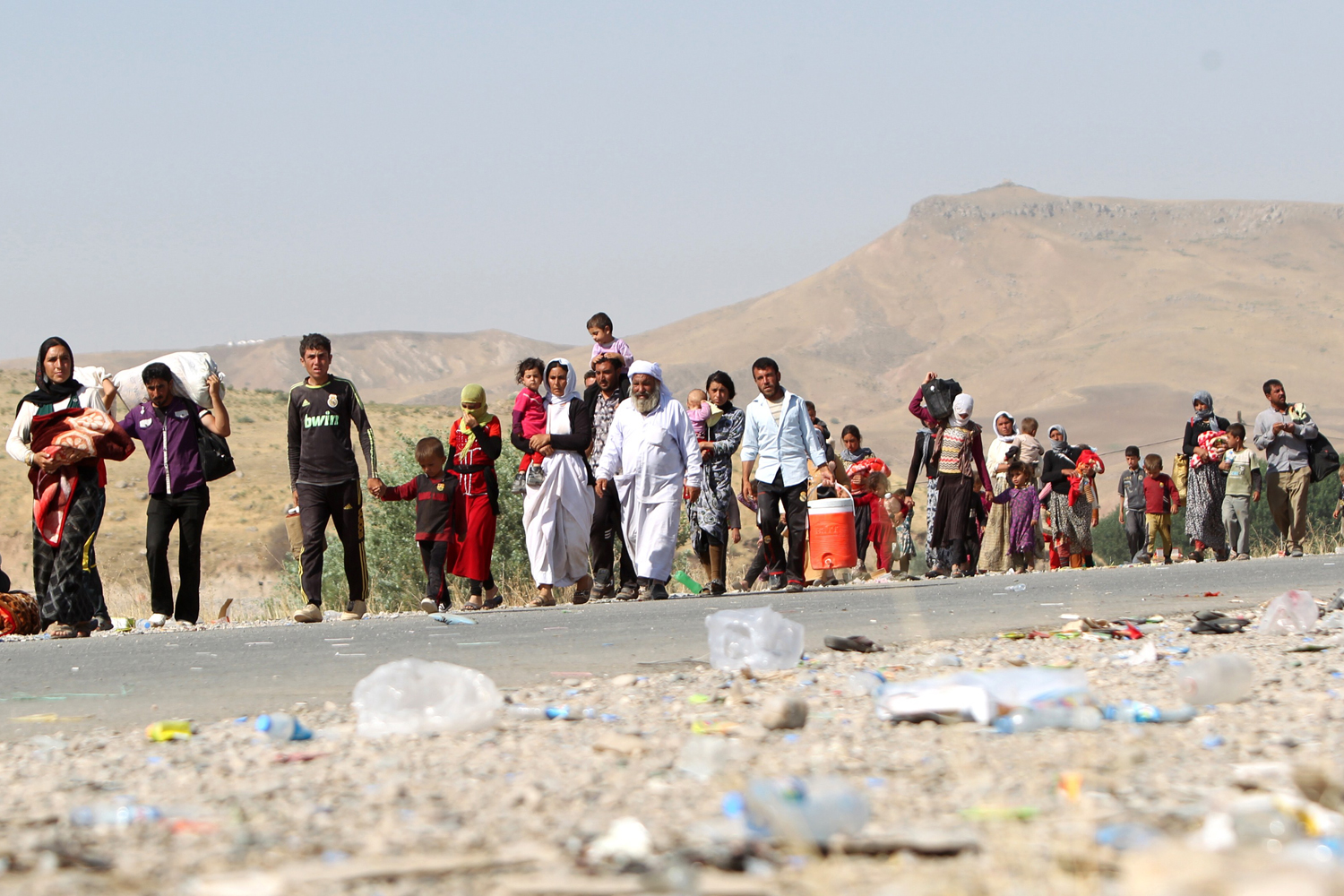
Updated 1:33 p.m. E.T.
President Barack Obama said Thursday that U.S. air strikes and humanitarian drops, as well as the efforts of Kurdish forces, have broken the siege of Mount Sinjar in northern Iraq, where thousands of members of the Yezidi religious minority had been trapped by the Islamic State of Iraq and Greater Syria (ISIS).
Speaking to reporters Thursday afternoon from Martha’s Vineyard, where he is vacationing, Obama said a U.S. military and civilian team concluded Wednesday that U.S. efforts have dramatically lessened the likelihood that a rescue would need to be staged to free the civilians on the mountain.
“Because of the skill and professionalism of our military and the generosity of our people, we broke the [ISIS] siege of Mount Sinjar,” Obama said. “We helped vulnerable people reach safety and we helped save many innocent lives.”
U.S. military aircraft have carried out around a dozen air strikes in Iraq since Obama authorized military action a week ago, and U.S. transport planes have delivered more than 114,000 meals and 35,000 gallons of fresh water on the mountain in airdrops carried out over the past seven nights.
Obama maintained that the situation in Iraq remains “dire” for those Iraqis who live in areas under the control of ISIS, which has taken large swaths of territory and several of the country’s largest cities in offensives over the past several months. Obama said the U.S. stands ready to carry out similar humanitarian efforts elsewhere in Iraq if necessary, and reiterated that U.S. air strikes would continue in order to protect American military advisers and diplomatic facilities in Iraq.
Obama added that the burden for a long-term solution to the crisis in Iraq lies on the shoulders of the Iraqi government, saying that after a conversation with newly selected Prime Minister–designate Haider al-Abadi, he is “modestly hopeful that the Iraqi government situation is moving in the right direction.”
Al-Abadi would replace Prime Minister Nouri al-Maliki, who is struggling to hold onto power even as domestic factions and international leaders have withdrawn support. Al-Maliki insists that he should have a third term in office, given the success of his Shi‘ite-led faction in an election this past April. However, President Fouad Massoum has asked al-Abadi, a lawmaker from al-Maliki’s Dawa Party, to try to form a government.
More Must-Reads from TIME
- Trump and Musk Have All of Washington on Edge
- Why AI Safety Researchers Are Worried About DeepSeek
- Behind the Scenes of The White Lotus Season Three
- Why, Exactly, Is Alcohol So Bad for You?
- The Motivational Trick That Makes You Exercise Harder
- 11 New Books to Read in February
- How to Get Better at Doing Things Alone
- Column: Trump’s Trans Military Ban Betrays Our Troops
Contact us at letters@time.com